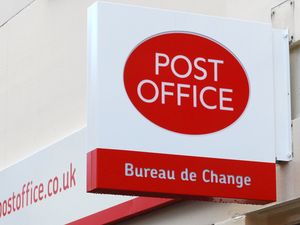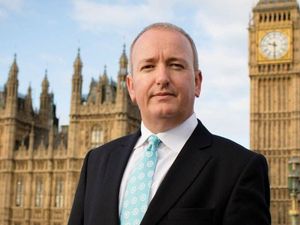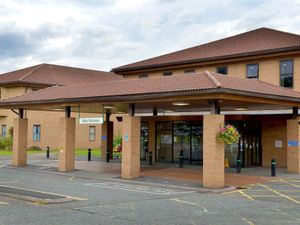Special feature: Devolution remains a puzzle
It has been hailed as a revolution in local government, but many people remain in the dark.
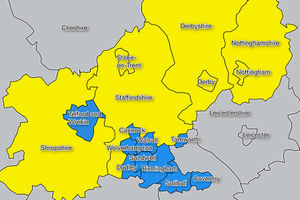
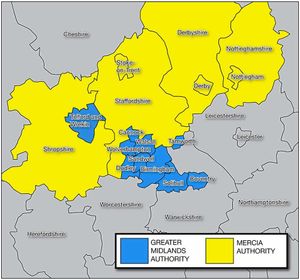
"We're determined to end the hoarding of power in Whitehall and rebalance our economy," said communities secretary Greg Clark as he revealed the Devolution Bill in May.
Manchester led the way in the world of combined authorities by gaining devolved powers in 2011, but more and more regions are now planning to bring together their collective clout to lobby government for greater local powers.
Now our local authorities are deciding where to align themselves in order to capitalise on the greater freedoms over transport and economy.
But Telford & Wrekin and Shropshire's councils are looking in different directions, threatening to turn the border between the two local authorities into Shropshire's equivalent of the 38th parallel.
Telford is to become a non-constituent member of the West Midlands combined authority, meaning that it is aligned to the authority for Birmingham and the Black Country without actually being part of it.

Drawing together Barnsley, Doncaster, Rotherham, north east Derbyshire and Sheffield, the Sheffield City Region would neighbour the Mercian Authority, were Shropshire to partner with Derbyshire and Nottinghamshire. The merger was first proposed in April 2014.

Durham, Gateshead, Newcastle upon Tyne, North Tyneside, Northumberland, South Tyneside and Sunderland drew together their powers to put forward proposals for the North East Combined Authority, which lies separate from proposals for the south of the region.

Greater Manchester has provided the template for the devolution of powers so far, having established a combined authority in 2011. It comprises councillors from the 10 boroughs of Greater Manchester, including Stockport and Bolton, and the interim mayor of the region.

This scheme brings together Buckinghamshire, Oxfordshire and Northamptonshire, and is aimed at bringing £9 billion of investment and 135,000 new jobs to the region of central England by 2020, through combining the Conservative-controlled areas' economic means. Joining together on infrastructure projects is intended to cut red tape which holds back growth.

Made up of Middlesbrough, Hartlepool, Redcar and Cleveland, Stockton and Darlington councils, the Tees Valley Authority would be the first unified authority to cover this corner of the North East since the mid-1990s, and would enjoy devolved powers over transport, economic development and regeneration. Proposed last year, it has received early public support.

Made up of Middlesbrough, Hartlepool, Redcar and Cleveland, Stockton and Darlington councils, the Tees Valley Authority would be the first unified authority to cover this corner of the North East since the mid-1990s, and would enjoy devolved powers over transport, economic development and regeneration. Proposed last year, it has received early public support.
The recent government announcement that councils will receive control of their own business rates means that a major ambition of many councils has already been delivered, and with Telford holding a solid recent record for attracting private investment, that may be something that works well in its favour.
Shropshire's own proposal for devolution has some way to go towards being defined.
One possibility is that it could become part of the Mercian Authority, placing it in the same authority as Staffordshire, Nottinghamshire and Derbyshire – but the latter two counties have already formed provisional plans to create their own combined authorities.
"We are having conversations across the board," said Shropshire Council leader Keith Barrow. "We aren't rejecting Hereford or Telford, but we are looking at what opportunities are there.
"There are synergies with other counties, like our community health links to Staffordshire. In Cheshire East we have had conversations with their leader, who is keen for the HS2 link to be at Crewe which would have huge advantages for Shropshire.
"It may seem like we are doing nothing, but we are working really hard, talking to lots of people."
A stipulation of the 2009 Devolution Act which laid the ground for the new proposals was that councils should already constitute a functional economic area.
Looking at the raw facts – the Mercia Authority would cover a geographically disparate area with a diverse economy and few links in modern history – it's plain that Shropshire's potential partners do not meet that criteria.
But with the plans for devolved powers being informed by what is wanted at council level, the changes to the Act coming in this year mean that cases put to government will be treated differently.
The combined annual economic output of Derbyshire and the city of Derby is worth just under £20 billion, and Nottinghamshire and Nottingham's is worth £21.3 billion.
Even excluding Stoke-on-Trent, Staffordshire's output is worth £14.1 billion a year, and Stoke adds a further 4.6 billion to the pot.
With Telford excluded, Shropshire's economy brings £5.5 billion to the table. Plainly, Shropshire is the junior partner, representing just 8.4 per cent of the combined economic output of a geographically vast area.
So what can Shropshire expect to gain by aligning itself to these regions? When the combined authority bids for government cash, how can the smallest kid in class really demand the first dip into the bran tub?
Mr Barrow cited pension funds as an example of how combining authorities could work.
At present, Shropshire Council's pension fund was worth around £1.6 billion – meaning that there was little appetite among fund managers to invest in Shropshire because of the relatively small scale of local projects.
Investment could be more tempting if they were combined with other authorities, Mr Barrow said, as the combination provides larger scale.
He added: "If you put bids together with other counties, it might be big enough to have pension funds interested.
"It's difficult at the moment, but we are having conversations with lots of people, see lots of opportunities, and have hired an economist to give help and advice.
"We all want and need to grow our economies, and in Shropshire we need to attract firms that pay higher salaries. People having a good job is singly the most important thing for us, as people in difficult circumstances inevitably cost more to the state than somebody who works.
"If we can grow the economy, we can be out of this period of austerity more quickly."
Of the scenarios which are currently being put forward, Telford's certainly appears the more intuitive.
Its arrangement will see it work with Birmingham, Wolverhampton, Walsall, Sandwell, Dudley, Coventry and Solihull on issues that go across borders, including regeneration, skills and transport.
But it will not be part of the devolution deal, seeking powers and funding from the central government to be controlled by a directly elected metro mayor, and is instead putting forward its own devolution proposal.
Telford & Wrekin's economy is not dominated by agriculture, which comprises 0.6 per cent of the economic output, compared to 20 per cent for manufacturing, the same for distribution and food, and 18.9 per cent for public services.

Telford & Wrekin Council cabinet member for business Shaun Davies explains why it is good for councils to look for safety in numbers
Telford & Wrekin Council this week agreed to join the West Midlands Combined Authority as a non-constituent member.
The WMCA, known as the West Midlands Engine for growth, consists of seven authorities – Birmingham, Walsall, Wolverhampton, Sandwell, Solihull, Dudley and Coventry.
What does that mean and why are we doing it?
It means we won't become part of a West Midlands authority, we won't merge with any other council, nor come under any centrally elected mayor.
In short, we will keep all our existing powers and all decisions will continue to be made here by councillors elected by our residents.
In reality, it's a very small decision compared with the one taken five years ago to join the Marches Local Enterprise Partnership.
We have nothing to lose but everything to gain. It risks very little but has the potential to bring very significant benefits for our borough.
Competing in a global marketplace, we need to forge new alliances to ensure we make the most of the great offer that Telford and Wrekin has, such as our supply of ready to go employment land – the biggest in the region.
It means we will be at the start of discussions about the region's economy that affect our borough.
Telford's strong manufacturing sector means that many of our businesses look more naturally to the West Midlands than elsewhere.
Just look at the strength of the automotive industry in Telford and the opportunities on our doorstep at places such as i54.
It can release huge potential economic benefits, attract more jobs and raise skills here to ensure we continue to compete in the future and our local residents have better paid jobs.
It's no surprise that many of the goals of the WMCA mirror what's in our devolution bid submitted to Government last month, such as the full retention of business rates long before the new scheme unveiled by the Chancellor begins.
It gives us an even better chance of successfully completing this.
And we would be rightly criticised if we let this opportunity slip.
It gives us a seat at the table to ensure we get the best for our residents.
It will be sitting around a table with Birmingham, where agriculture comprises 0.03 per cent of the output, manufacturing 9.7 per cent and public administration 24.4 per cent; and Wolverhampton, where agriculture is small at 0.09 per cent, distribution is big at 18.5 per cent and public administration bigger still at 26.6 per cent.
Shropshire, where agriculture represents 3.5 per cent of the economy and manufacturing 12.3 per cent, is far more similar to Herefordshire (9.7 per cent and 16.3 per cent) than Derby (0.03 per cent and 25.8 per cent).
But does it matter? Not necessarily, says Richard Sheehan, chief executive of Shropshire Chamber of Commerce.
"There's an argument for both scenarios," he said. "If you align with a smaller economic profile then consequently you're with like-minded people that think in the same way.
"However, if you align with somebody different and more diverse that can bring new skills, awareness, knowledge and opportunities.
"If you think of the combined authority like a large manufacturing plant, and the non-constituent partners as a supply chain, traditionally, they are the ones that can seize upon the opportunities from the larger unit."
He added: "But we mustn't sell our soul to the devil and give up our rights and decision-making powers at a local level, particularly with the change in business rates that's coming. You want that decision making at a local level, as one would like to think local knowledge is better than somebody in Birmingham when it comes to deciding where money needs to be spent."
At present, the precise shape of the different combined authorities, and what powers they will have, has still to be defined, but a spokesman for the Department for Communities and Local Government said the shape of the new powers could come from within Shropshire.
"This government is determined to ensure power and funding is devolved from Whitehall to local people so that no corner of the country is left behind," the spokesman said.
"However, we've been clear that all proposals should be bottom up – it is for local areas to decide, according to their priorities.
"We welcome the fact that civic leaders from all over the country are enthusiastic about the potential of devolution and will consider submissions from all places that have strong, credible proposals."
Each proposal will be asked to outline areas that could be delivered better by handing the powers to local authorities, potentially including budgets that are currently controlled centrally, which will be decided on a case-by-case basis. But the more ambitious the devolution plans, the more specific and robust the case that is put to government must be.
If Shropshire buddies up with the Mercian Authority, it's quite possible that it will be part of an authority asking for large-scale powers, and would need to set out a clear and well-defined case to be able to determine its own economic destiny.
At present, it appears likely that Shropshire will form some kind of partnership with Staffordshire, while MPs in the potential partner county have backed the Mercian proposals.
"Staffordshire is not inner city Birmingham," said South Staffordshire MP Gavin Williamson. "We don't want to be subsumed into a Greater Birmingham."
Mercia: a new powerhouse of the Midlands, or another white elephant?
In Anglo-Saxon times, the Kingdom of Mercia seemed unstoppable. At its zenith, King Offa's fiefdom spanned England from the Humber to the English Channel, and he treated lesser kings, such as those of west Sussex, East Anglia and Essex, like his subjects.
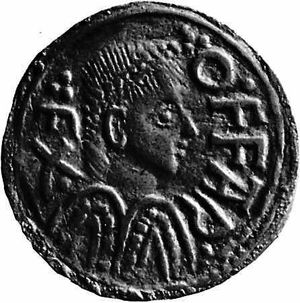
Some 1,200 years on, political leaders in Shropshire and Staffordshire are hoping to create a new Midland powerhouse. Staffordshire MPs Jeremy Lefroy, Gavin Williamson and Karen Brady have called for the creation of a new Mercian combined authority, which would see the county join forces with Shropshire district, as well as Nottinghamshire and Derbyshire. Telford & Wrekin, which last week announced it would be joining the proposed West Midlands Combined Authority, would not be included under the plans.
The moves have caused some bemusement among those areas that have been linked to Shropshire.
Civic leaders in the two East Midland counties said they had received no approach from either Shropshire or Staffordshire councils, and would not be drawn on whether they would support such a move.
In fact Nottinghamshire and Derbyshire are preparing their own party – and Shropshire is currently not invited.
Councillor Alan Rhodes, leader of Nottinghamshire County Council, said negotiations with central government about a devolution deal for Nottinghamshire and Derbyshire, known as D2N2, were at an advanced stage. He said: "Our current position is that there are two bids for combined authorities in progress – one for Derby and Derbyshire (D2) and one for Nottingham and Nottinghamshire (N2).
"We will continue to negotiate to ensure that we get the best deal for the residents of both Nottinghamshire and Derbyshire but any agreement would be subject to approval by elected members and subject to public consultation. We've not been approached by Shropshire or Staffordshire County Councils on a wider devolution plan but we anticipate further detail on the matter."
The proposal from Shropshire emerged immediately after last week's announcement that Telford & Wrekin Council would be joining the proposed West Midlands Combined Authority as a 'non-constituent member' alongside Cannock Chase and Tamworth – once the capital of the Kingdom of Mercia.

The idea of the proposed authority is to bring together Wolverhampton, Dudley, Sandwell and Walsall, Birmingham, Coventry and Solihull Councils as part of the Government's 'devolution deal', which will see the authority given powers and funding from central government. The three non-constituent members will not be part of this plan, but they will work closely with the full members on matters which cross authority boundaries.
The Staffordshire MPs are proposing that a similar arrangement could benefit the four shire counties. Mr Lefroy said: "I'm pushing for Staffordshire to get together with Shropshire, Derbyshire and Nottinghamshire in a large Mercian partnership.
"We see no problem in the decisions of authorities like Cannock Chase, Tamworth and Telford & Wrekin to join the West Midlands Combined Authority. It makes sense because of their proximity to Birmingham or the Black Country. They could all have a foot in both camps."
Anybody who has followed the negotiations leading to the formation of the proposed West Midland authority will know that the road has not been smooth. Even coming up with a name for the body sparked bitter divisions with Black Country councils vetoing the proposed Greater Birmingham tag.
Earlier this month, business leader Johnathan Dudley reignited the row by saying the authority should be known as Greater Birmingham. Mr Dudley, who is head of Black Country accountancy firm Crowe Clark Whitehill, said the name was the preferred choice of business leaders.
For people who are not familiar with the Black Country, it is hard to comprehend how toxic associations with the second city are to some people in that fiercely parochial neck of the woods.
However, Mr Dudley set the cat among the pigeons when he said: "I am Black Country through and through, but if Birmingham and the West Midlands want to be competitive then things have to change. People abroad don't know where the West Midlands is but they have heard of Birmingham. If you are going for a combined authority then make it Greater Birmingham or don't bother."
There are plenty in the Black Country who would prefer to take the latter course of action.
Ukip Euro MP Bill Etheridge, whose West Midlands European constituency includes Shropshire, has been one of the most vocal critics of the proposed authority. Mr Etheridge, also a councillor in Dudley, wore a black tie at a recent press conference on the proposals, saying they would mark the death of democracy. He said: "I am deeply concerned that this incestuous relationship between Labour and the Conservatives will witness the birth of something that will take power from people in Dudley, Walsall, Wolverhampton, Solihull, Sandwell, Birmingham and Coventry.
"Any claims that the creation of a combined authority in the West Midlands will bring greater devolution have, in my view, been exposed as a charade."
Certainly, the last attempt to create a combined authority taking in Birmingham and the Black Country was an unhappy experience. The West Midlands County Council, started in 1974, lasted just 12 years. At the same time, the equally unloved Hereford & Worcester County Council was formed.
Time will tell whether the new combined authorities being proposed for Shropshire will create the same degree of resentment as these previous bids to create super-councils. Proponents argue that the new regional authorities are not about taking powers away from locally elected representatives, but rather devolving powers from Westminster.
However, the ferocity of opposition to the creation of the new Shropshire unitary authority in 2009 shows just what a minefield changes to local government can be.
Whether we will see the return of Mercia as a political powerhouse remains to be seen, but one thing is certain: it is a long way from Ludlow to Newark.


